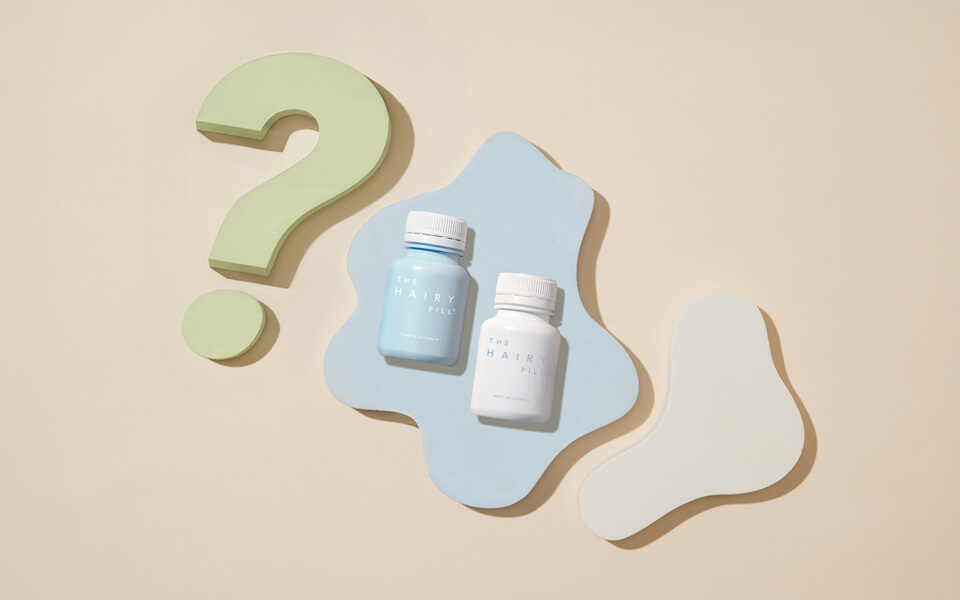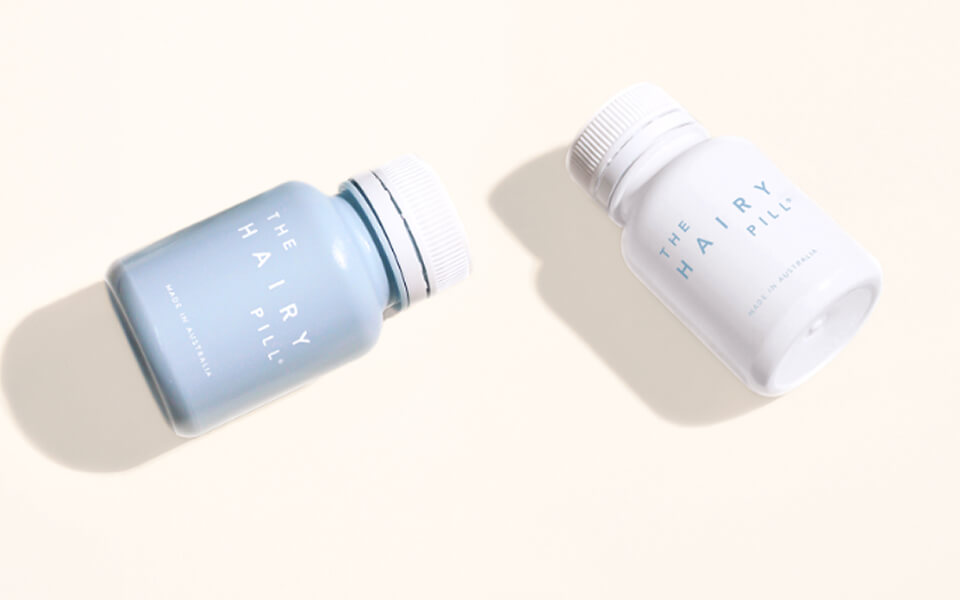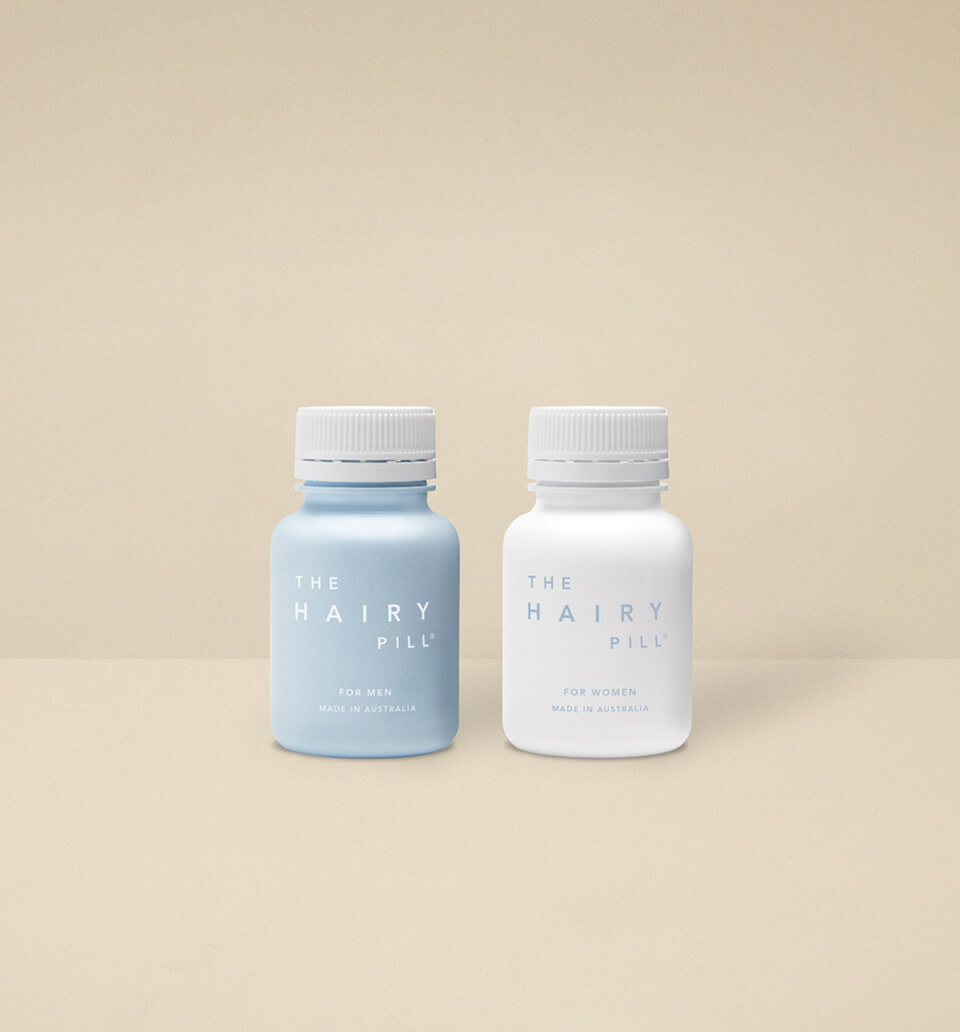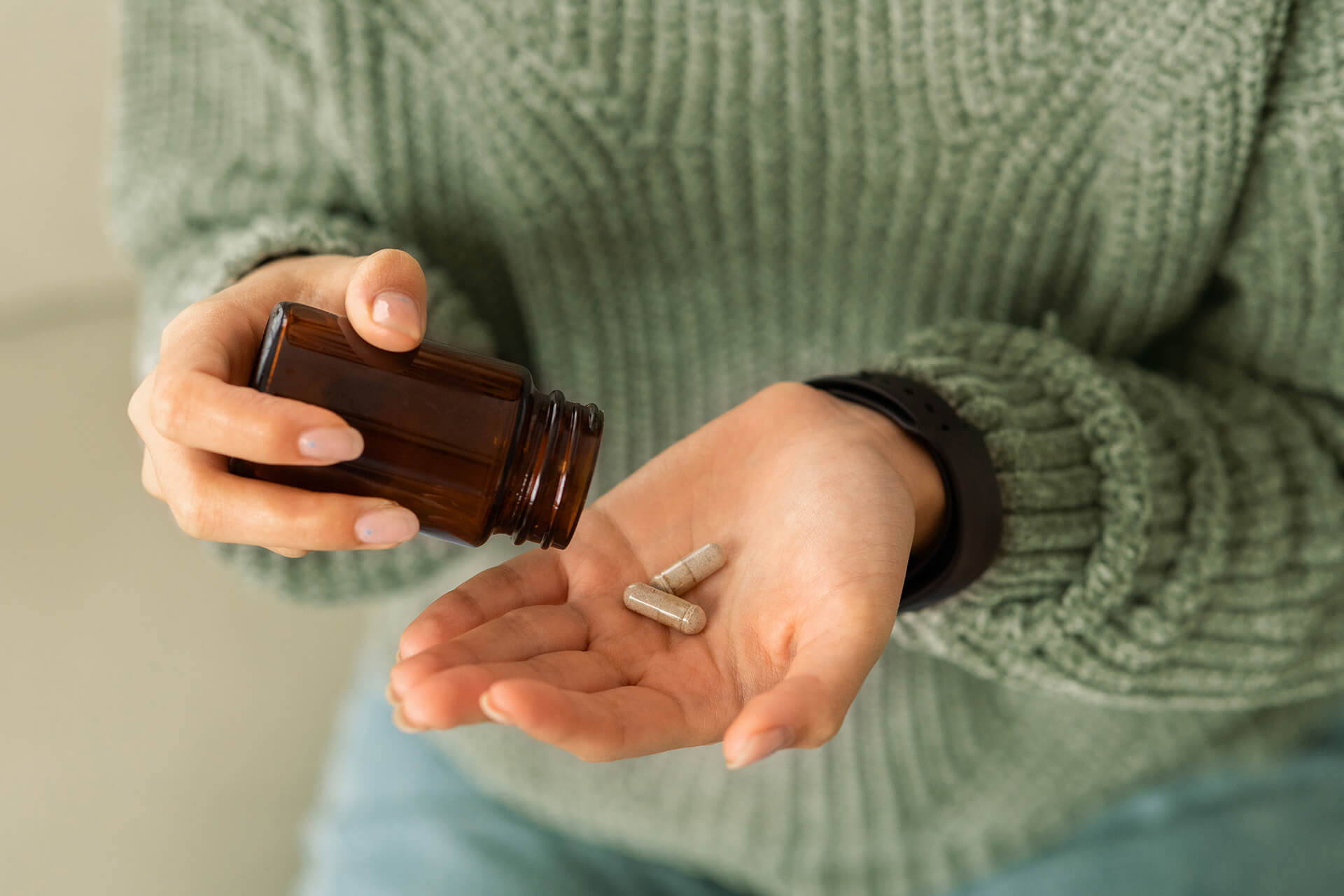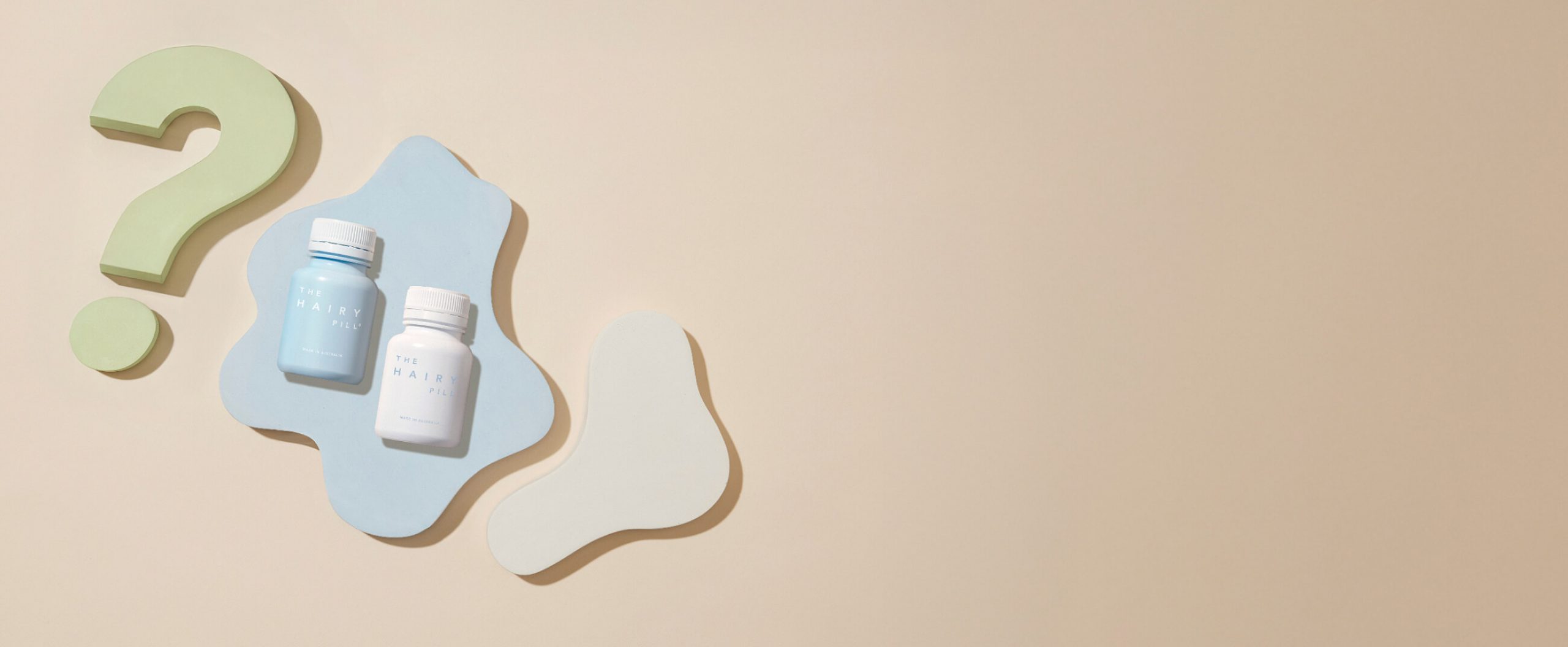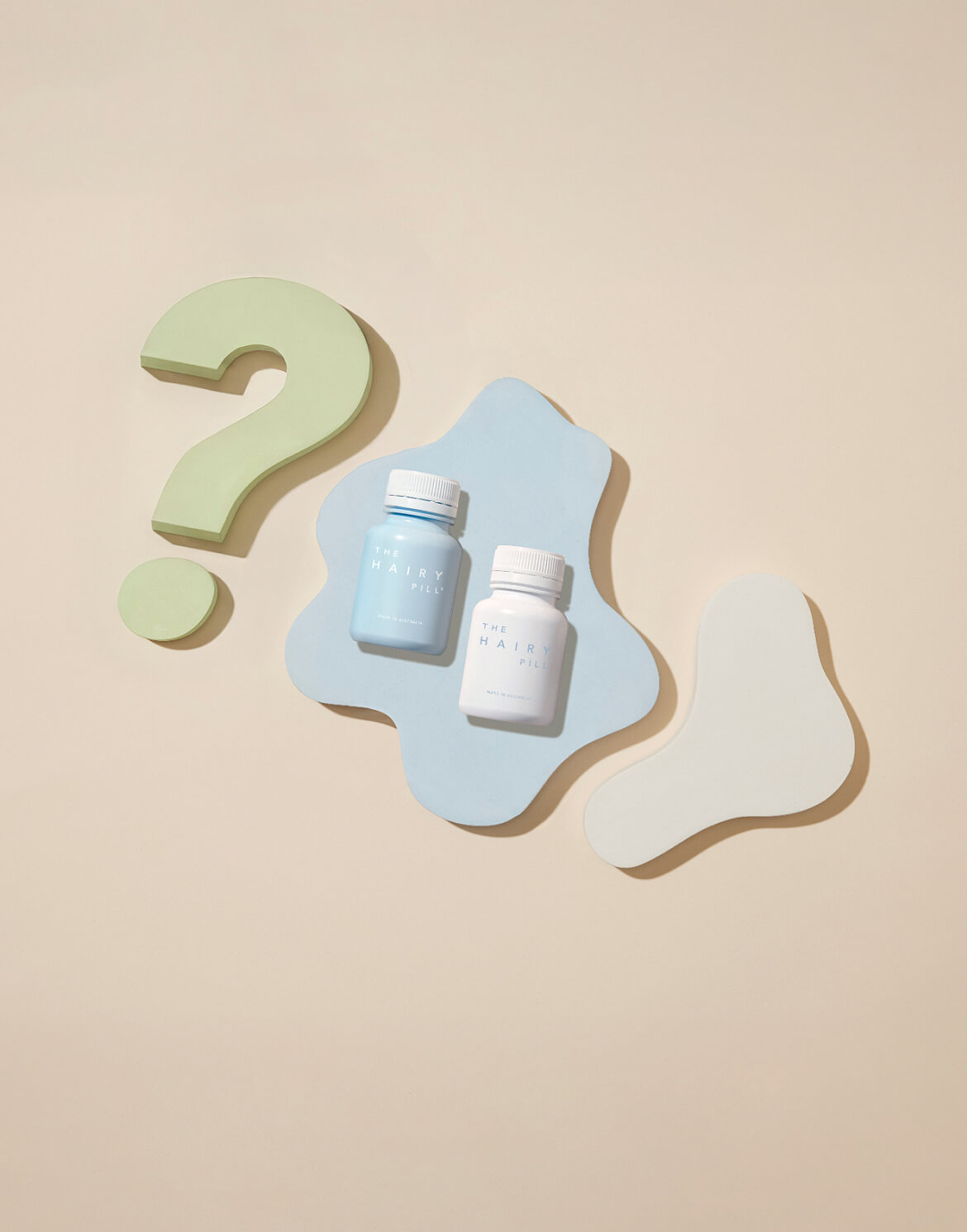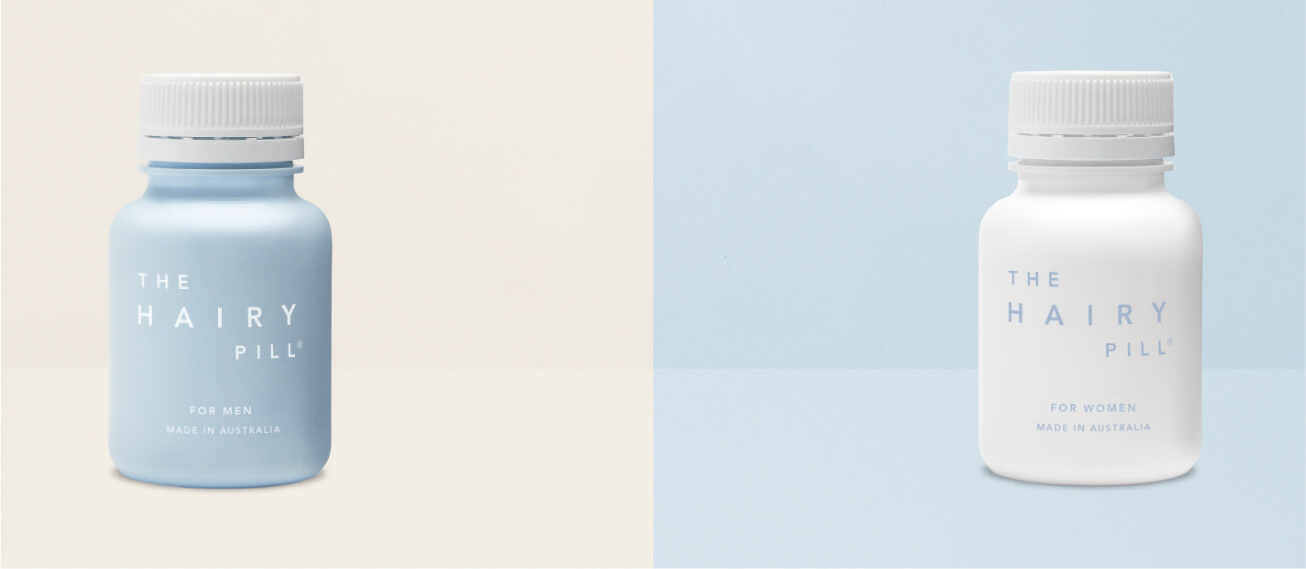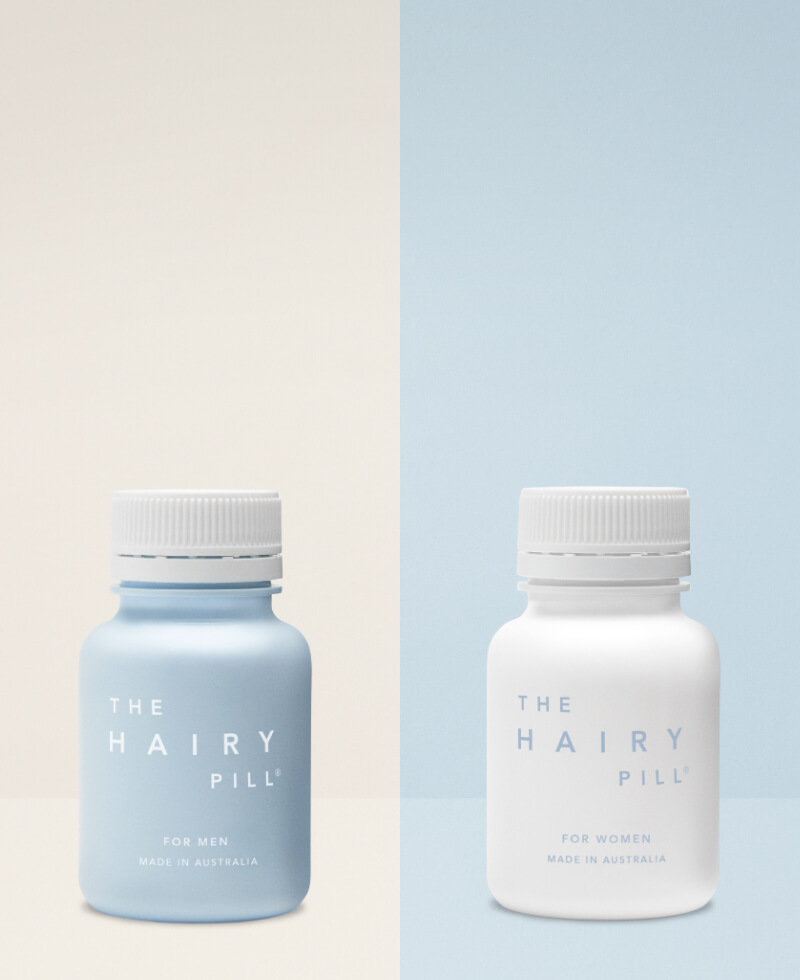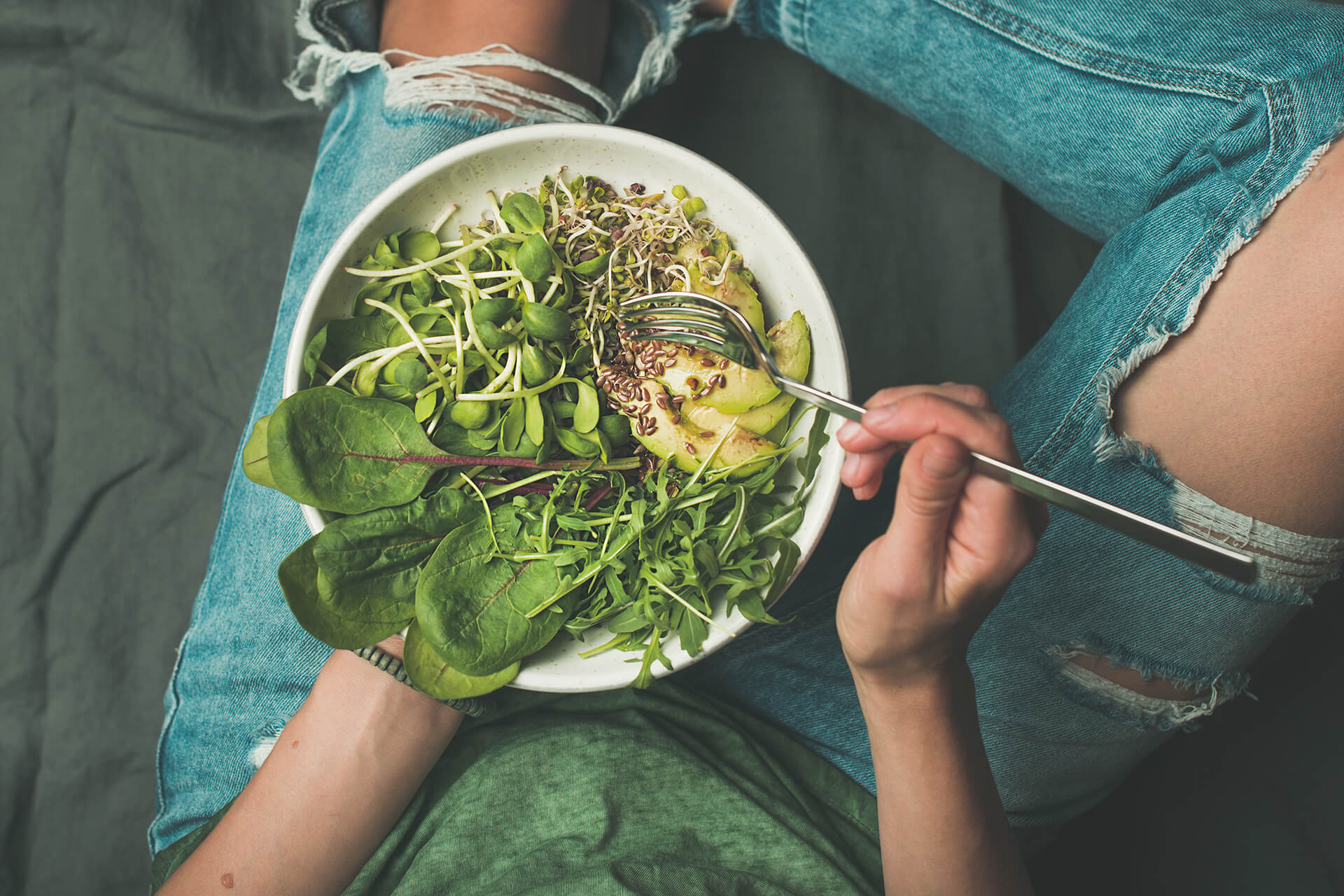Our hair follicles are busy bees. As highly active parts of our body, they need nutrients to produce healthy hair.
These nutrients include a range of vitamins that help grow hair, including biotin, vitamin E, vitamin C, vitamin D, and vitamin A. Minerals are important too — particularly zinc, iron, and keratin.
Some studies have found that certain vitamin deficiencies may contribute to weak hair or hair loss, which shows just how important they are for your hair health.
In this article, we’ll investigate which vitamins and minerals help grow healthy hair, why, and what you can do to treat hair loss as a result of a vitamin deficiency (including proven hair loss treatments for men and women).
The Vitamins Your Body Needs to Make Healthy Hair
There isn’t one thing that makes healthy hair. It comes from youth, lucky genes, general health, and good nutrition, to name just a few.
But some vitamins do have a crucial role in maintaining the health of your hair follicles and your hair growth cycle — the two things that make sure you have strong, healthy hair.
Biotin
If the rows of hair growth supplements are anything to go by, biotin is THE vitamin for healthy hair. There’s plenty of truth to this.
Biotin, or B7, helps create the red blood cells that carry oxygen and nutrients to the hair follicles. We also need it to produce keratin, the protein that makes hair. Biotin helps build strong hair and minimise breakage.
But before you head to the nearest health food store to buy a tub of biotin hair growth supplements, it’s important to note that for most people, the body makes all the biotin they need as long as they eat a normal, healthy diet.
Vitamin E
We’re still in the early days of researching the effect of vitamin E on our hair health. This versatile vitamin is best known for its role in promoting healthy skin. So could its impact on the scalp in turn improve our hair?
Much of the power of vitamin E lies in its powerful antioxidant properties. This helps reduce oxidative stress in the skin and keep hair follicles healthy.
Vitamin E might also have a role in boosting blood flow around the body, which is considered one of the best ways to stimulate hair follicles to grow healthy hair.
Vitamin C
Vitamin C offers many of the same benefits as vitamin E. As a powerful antioxidant, vitamin C can neutralise free radicals and reduce oxidative stress. It’s also believed to boost blood flow, which may help nourish hair follicles.
It also promotes the production of collagen, which is essential for hair structure, and helps your body absorb the hair-nourishing mineral iron.
Vitamin D
Vitamin D is anti-inflammatory and boosts the immune system. It also interacts directly with hair follicles, making it critical for the growth of healthy hair.
When it comes to vitamin D, most research focuses on its role in hair loss, rather than hair growth. If you don’t get enough vitamin D, the skin cells responsible for making hair (called keratinocytes) struggle to do their job properly.
This can lead to hair shedding and hair loss, with a lot of evidence linking vitamin D deficiency to hair loss conditions like telogen effluvium and alopecia areata.
Vitamin A
Vitamin A is considered essential for healthy vision and immune function. But it also has a role in the hair growth cycle.
A 2015 study involving mice found that dietary vitamin A activated the stem cells in hair follicles. This is because of the retinoic acid in vitamin A; it regulates hair follicle stem cells and influences when the growth phase of the hair growth cycle starts and ends.
Naturally, this means vitamin A may have a role in healthy hair growth. But the flip side is also true. Too much vitamin A may cause hair loss, particularly if you’re taking supplements when you don’t have a vitamin A deficiency.
Discover if The Hairy Pill® is right for you.
Take our short hair health quiz and we will work out if The Hairy Pill® can help you and your hair.
Take the quizBonus: Minerals Essential for Hair Growth
We’ve covered all the best vitamins for hair growth but did you know there are a few minerals that are also essential for strong, healthy hair?
Zinc
The body only ever needs a smidge of zinc at any given time yet this mineral is essential for a range of different functions, including hair growth.
Zinc nurtures the cells within our hair follicles, including those that synthesise keratin, the protein fundamental to the architecture of our hair strands.
But it doesn’t stop there.
It also helps regulate levels of hormones like testosterone and dihydrotestosterone, which can have a big impact on whether you’re growing hair or losing it.
Finally, it plays a pivotal role in the division and proliferation of cells, important processes for hair growth.
There’s a lot of strong evidence that zinc deficiencies can play a role in a range of hair loss conditions, including telogen effluvium, androgenetic alopecia, and alopecia areata.
Learn more about the link between testosterone and hair loss.
Iron
Plenty of studies have shown that iron deficiency and hair loss are linked, particularly in women, and that iron supplements can help hair grow.
However, we don’t know a lot about the role iron has in hair growth.
The mineral is believed to boost blood circulation by helping your body produce haemoglobin. These red blood cells transport oxygen around the body to help grow and repair cells, including hair follicle stem cells.
Keratin
Hair is made up of keratin, making this mineral rather essential to the health of your hair. As the building blocks of hair, keratin strengthens and protects your strands.
Ready to start your hair growth journey?
- Free express shipping
- Unlimited doctor consultations
- Simple once a day treatment
Treating Hair Loss & Vitamin Deficiency
There have been several links to vitamin deficiencies and hair loss. Here are some ways to ensure you get enough of the vitamins and minerals your body needs to produce healthy hair.
Eat a diet high in foods that nourish the hair
Eating a balanced diet is one of the best ways to ensure your hair follicles get all the nutrients they need to grow healthy hair.
Go for nutrient-dense foods rich in protein, along with plenty of healthy fats, fruits and vegetables.
Learn about the best foods for healthy hair.
Take supplements to target a specific deficiency
It’s tempting to reach for an easy off-the-shelf supplement to boost hair growth and shine.
But every body is unique, which means generic supermarket supplements may not necessarily give your body what it needs (unlike The Hairy Pill®, which has 650+ different formulations so that it can be personalised to you).
Before you self-prescribe, it’s best to consult with your doctor, who can investigate and identify any vitamin deficiencies that may require supplementation.
Compare hair growth supplements with hair loss medication.
Try a proven hair loss treatment
If you’re concerned that you’re losing hair at an unprecedented rate, you may need something a little stronger to stop hair loss and stimulate your hair follicles to grow healthy hair.
The Hairy Pill® is a hair loss therapy that requires just one pill taken daily (with specific formulations for men’s hair loss treatments and women’s hair loss treatments).
Give Your Hair a Fighting Chance with The Hairy Pill®
There’s no junk science here. The Hairy Pill® is backed by science and over 30 years of research.
We can give you access to one of our partner doctors, who can assess the state of your hair and your needs.
The doctor can recommend a personalised hair loss therapy that may help improve the health of your hair, halt the progress of hair thinning, and even reverse your hair loss.
We also have partner pharmacists who can compound the treatment so that it’s truly personalised to you.
The Hairy Pill® treatments for hair loss, hair growth, and hair health contain a personalised mix of amino acids, essential elements, and vitamins made to help supercharge hair regrowth.
No gimmicks. Just science.
It takes just 5 minutes to get started.

